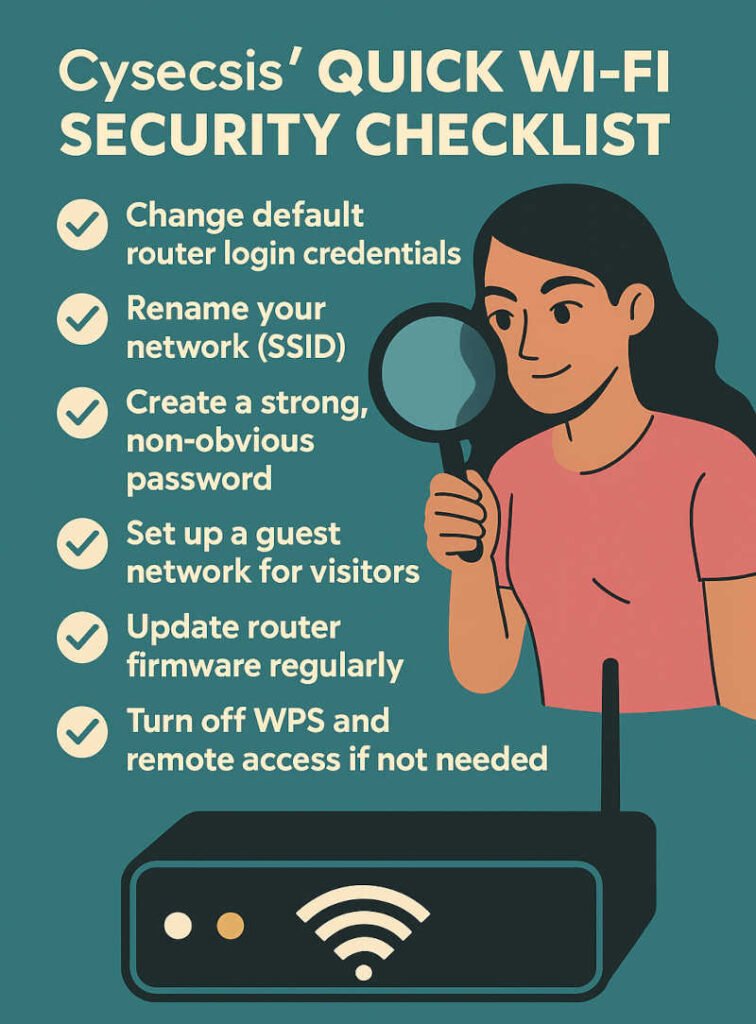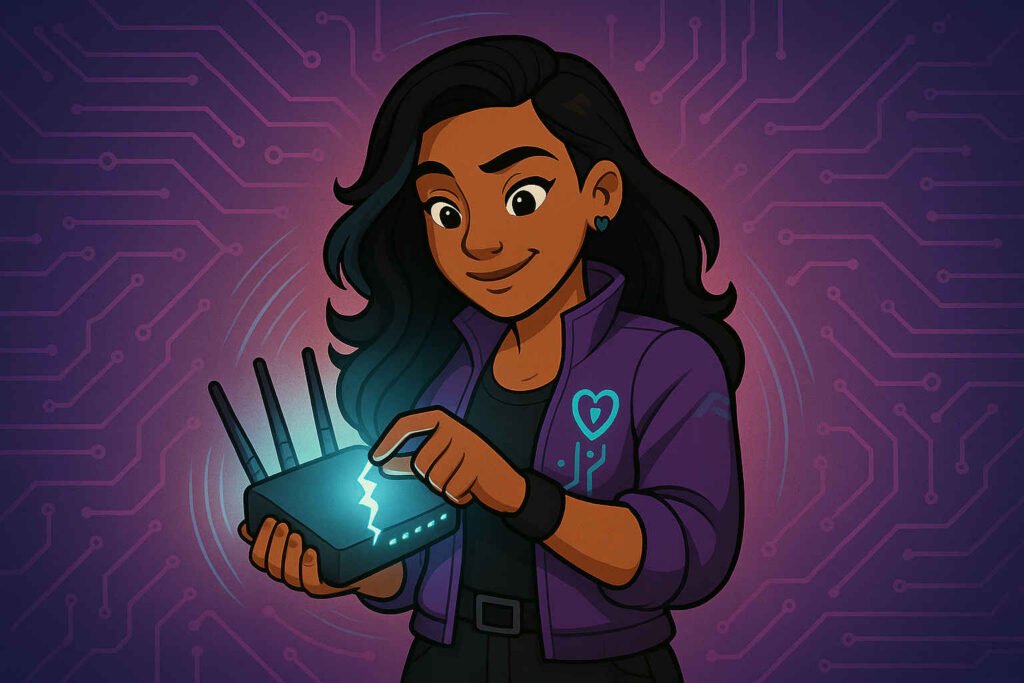“Your home Wi-Fi could be your weakest link.”
📶 Your Wi-Fi Knows All Your Secrets
Your Wi-Fi sees everything: your late-night YouTube binges, your essay panic sessions, your game lobbies, your group chats, and all your streaming obsessions.
But here’s the kicker—if you haven’t secured it properly, your Wi-Fi might be sharing those secrets with someone else too. 👀
Let’s talk about how to lock it down like a pro—because trust me, even your router deserves a glow-up.
🔓 Why Wi-Fi Security Actually Matters
Most people plug in their router, connect their phone, and never think about it again. But default settings leave you wide open to:
- 📡 Neighbors or strangers piggybacking on your connection
- 🎯 Hackers accessing smart devices like cameras and speakers
- 🧠 Malware spreading through your network like gossip
- 📁 Sensitive files or passwords being exposed
Your Wi-Fi is the front door to your digital house. And if the door’s wide open? Don’t be surprised when someone walks in.
🧠 First Things First: Change That Default Router Password
If you’re still using the default login info that came with your router—like “admin” / “password”—you’re basically begging to get hacked.
- Log into your router settings (usually something like
192.168.0.1in your browser) - Change the login name and password to something strong and unique
This is different from your Wi-Fi network password—it’s the password that controls the router itself.
📛 Next Up: Rename Your Wi-Fi Network (SSID)
If your Wi-Fi is still called “Linksys123” or “NETGEAR,” it’s not just boring—it’s also a dead giveaway of what kind of router you use.
Instead:
- Pick a creative name that doesn’t reveal personal info
- Avoid using your real name, address, or apartment number
- Bonus points for nerdy names like “DropItLikeItsHotspot” or “LAN Solo”
🔐 Create a Strong Wi-Fi Password
Now let’s talk about your actual network password—the one you give to friends when they visit.
Don’t use:
- Your dog’s name
- Your birthday
- “12345678” (yes, people still do this)
Instead:
- Use at least 12 characters
- Mix uppercase, lowercase, numbers, and symbols
- Make it something you can say, but others can’t guess (e.g.,
WeLoveTacos99!)
📱 Set Up a Guest Network (Yes, Really)
Your guests don’t need access to your smart lights, printers, or baby monitor.
A guest network keeps your main stuff safe while still letting your friends scroll TikTok in peace.
- Enable “Guest Network” in your router settings
- Give it a different name and password
- Turn off guest-to-guest communication, if your router allows
This also means if a guest accidentally brings in malware from a sketchy device, it won’t spread to yours.

🔄 Don’t Forget: Update Your Router Firmware
Yes, your router needs updates too. And no, it won’t do it automatically unless you tell it to.
- Log into your router dashboard
- Look for “Firmware Update” or “Check for Updates”
- Enable automatic updates if the option exists
Updates fix bugs and patch security holes. Think of it as brushing your router’s teeth.
🎮 Gamers, Streamers, and Students: You Especially Need This
If you game online, stream in HD, or do remote classes—your network is busy and potentially vulnerable.
- Use Ethernet where possible for more speed + less risk
- Double-check what’s connected to your network regularly
- Limit the number of devices with admin access
Your Wi-Fi shouldn’t just be fast. It should be safe.
📋 Cysecsis’ Quick Wi-Fi Security Checklist
- ✅ Change default router login credentials
- ✅ Rename your network (SSID)
- ✅ Create a strong, non-obvious password
- ✅ Set up a guest network for visitors
- ✅ Update router firmware regularly
- ✅ Turn off WPS and remote access if not needed
💬 Real Talk
It’s easy to ignore your router until something goes wrong. But your Wi-Fi is more than just a signal—it’s the foundation of your online life.
So give it the respect it deserves. Give it a little love. Lock it down. Because you deserve a network that’s safe, fast, and all yours.
Secure your Wi-Fi. You don’t want your neighbor watching you binge Netflix.
Coming next: Oversharing Online—Where’s the Line?
Because even good intentions can leave you too exposed.
